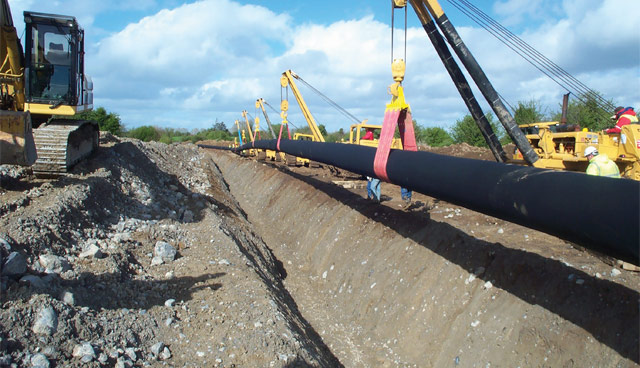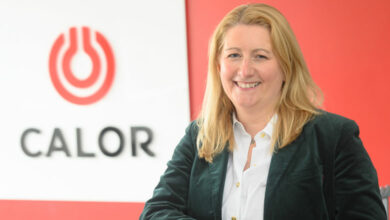Learning from RIIO-2

Deadlines loom for the transmission and gas distribution companies in Great Britain as they finalise their business plans for December submission to their regulator, Ofgem, under the RIIO-2 price control framework. Peter McClenaghan discusses lessons for Northern Ireland.
Those organisations that did not begin preparation well in advance will struggle to put forward a convincing case to meet its requirements.
RIIO, which stands for Revenue = Incentives + Innovation + Outputs was introduced following Ofgem’s root and branch review of its previous regulatory regime, RPI-X@20, eight years ago.
The new regime was designed to respond to the need to decarbonise the energy network by encouraging innovation, tackle issues of uncertainty, and create incentives for companies to invest flexibly in the future. It also placed a greater emphasis on the companies reaching out to understand their consumers’ priorities.
Although RIIO-2 builds on the previous price control, Ofgem has made changes. Following concerns about the level of returns being earned by the companies, the industry expects lower allowed returns and limited scope for outperformance.
Lessons abound for Northern Ireland companies, not least because of the Northern Ireland Utility Regulator’s reciprocal relationship with Ofgem.
Customer engagement
Ofgem has requested that network companies establish customer engagement groups to scrutinise and challenge the companies’ RIIO-2 price control business planning.
In addition, companies must undertake extensive customer engagement to guide decisions, determine priorities and to feed into how Ofgem calibrate incentives.
This builds substantially on the customer engagement that Ofgem required for RIIO-1 and on the practices developed by the water industry, where ‘triangulation’ is used to reconcile the views of customers, policy makers and shareholders when making decisions.
The scale of engagement is far above that undertaken in Northern Ireland to date. However, it is the independent nature of the engagement groups mandated by Ofgem that is the significant differentiating factor from the advisory work of the NIE Networks Customer Engagement Advisory Panel and the NI Water Consumer Engagement Oversight Group.
Given that customer input was lacking during the GD17 gas distribution price control process, and significant customer growth continues, it is highly likely that the Utility Regulator will introduce enhanced customer engagement for the GD23 price control.
The Northern Ireland gas distribution companies should get ahead of this development by focussing on building evidence of high-quality systematic engagement to understand the needs of on-grid and off-grid consumers.
Environmental protection
As part of RIIO-2 Ofgem has introduced a common environmental framework across all energy sectors, and a penalty and reward regime in gas, to support the transition to a low-carbon energy system.
This will require companies to develop, and annually report on, an environmental action plan.
It is intended to ensure companies go further to mitigate their environmental impact including by reducing shrinkage, fleet emissions and waste sent to landfill.
Environmental protection has received little focus in our network price controls. As such, companies here would be well served by introducing internal targets for waste and carbon reduction and developing recording metrics in expectation that the Utility Regulator will emphasise environmental factors in future.
Innovation
Ofgem has introduced measures to encourage more innovation as business as usual and has extended the existing innovation stimulus to trial potential network solutions to the challenges arising from the low carbon transition.
For GD17 the Utility Regulator declined to use innovation incentives. It also refused upfront allowances for innovation in NIE Network’s RP6 but did include re-openers relating to innovative future investment and facilitation of low carbon technologies post 2021.
If network companies wish to alter the Utility Regulator’s thinking regarding innovation a new approach is required.
Approaching future price controls with well evidenced proposals for specific projects may prove more successful than requests for generic innovation funding.
This work need not be undertaken alone. Network companies could follow the Regulator’s GD17 suggestion and collaborate with regards to innovation.
The roll-out of biomethane injection, which Ofgem is driving in RIIO-2, is a good example where collaboration could lead to innovation.
Process
Gas network companies should begin engagement with the Utility Regulator now to co-design a manageable data submission structure and price control process for GD23. In doing so they can learn from good and bad practice by Ofgem.
Ofgem has set a high bar for customer engagement and board involvement in the business planning process in RIIO-2 but hasn’t allowed the companies enough time to do this properly.
However, it has responded positively to the criticism it received by updating the process it will apply to for electricity network companies as part of RIIO-ED2 next year.
This change involves relaxing of extremely tight timelines and requesting only one draft submission instead of two.
Despite the process difficulties faced during RIIO-2 the Utility Regulator may wish to adopt the dual submission approach taken by Ofgem. It would enable the Utility Regulator to provide feedback on an initial draft business plan which the companies could then improve in line with guidance received.
This method would assist companies to better understand regulatory challenges early in the price control. In the context of the smaller Northern Ireland industry, this approach may even create a more co-operative, less confrontational approach to the process.
The process would also be aided by ending the practice of using Ofgem style data capture requirements for Northern Ireland companies. This is particularly important given that the new RIIO-2 iteration of Ofgem data submission tables are unrealistically voluminous even for large GB companies.
Policy uncertainty
The Department of Business, Energy and Industrial Strategy is currently working to develop future policy relating to long term heat decarbonisation.
This has required Ofgem to make provision for a price control re-opener to address the potential impact on gas distribution networks.
Similarly, in the absence of the Northern Ireland Executive it is expected that the Department for the Economy will issue a preliminary discussion document on updating the 2010 Strategic Energy Framework in the coming months.
The strategic framework will have significant impact on the potential NIE Networks RP6 reopener and on the gas networks GD23 price control, particularly regarding network development, and reinforcement. Therefore, companies should begin working with the Utility Regulator to develop mitigations if a new Strategic Energy Framework is in place in time.
It is also in the companies’ interests to assist the Department for the Economy in the development of the framework, by providing considered proposals on issues such as heat decarbonisation, smart metering, smart grids and biomethane injection onto the gas grid.
Peter McClenaghan is a regulation and strategy consultant and Managing Director of Engage Strategy.






